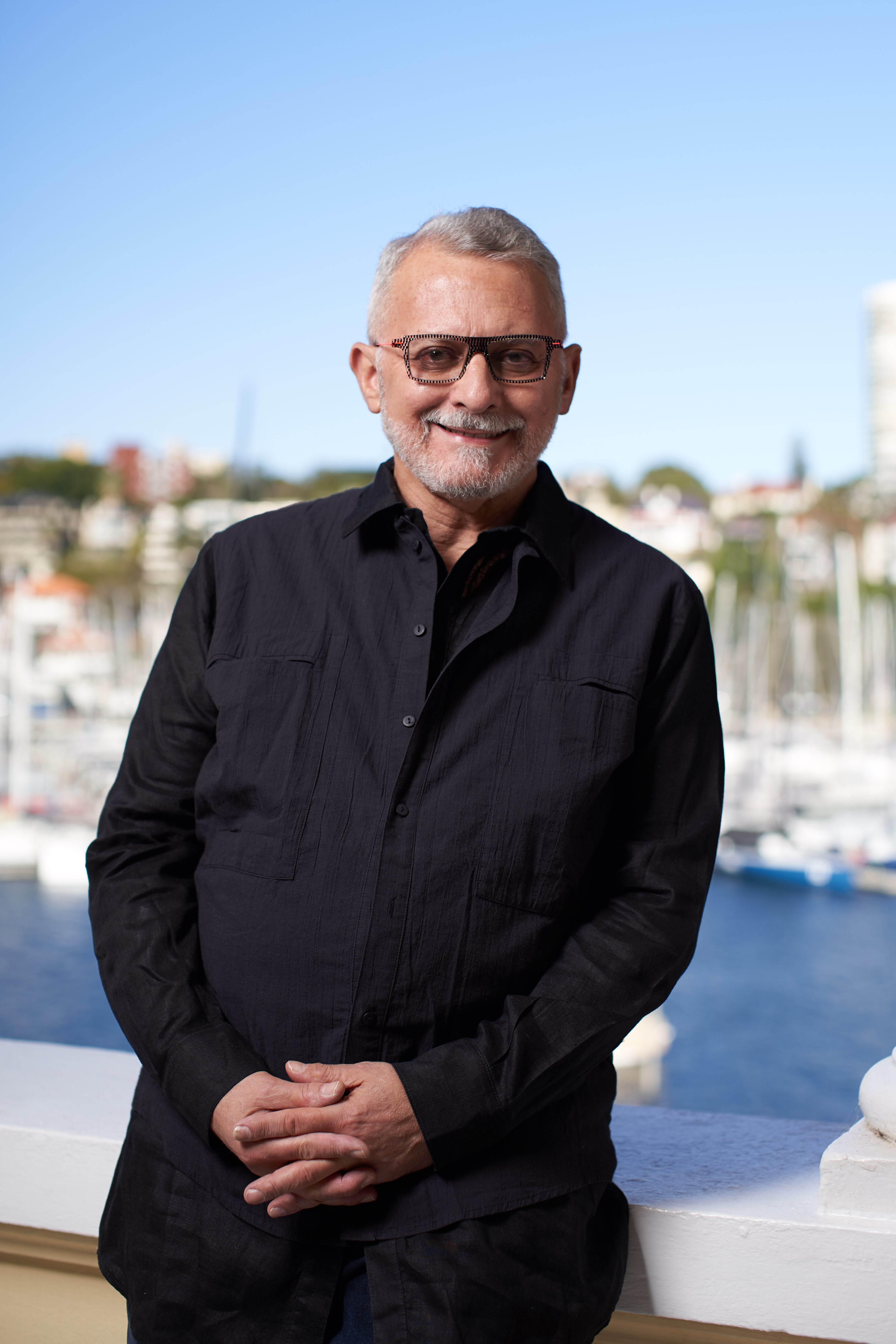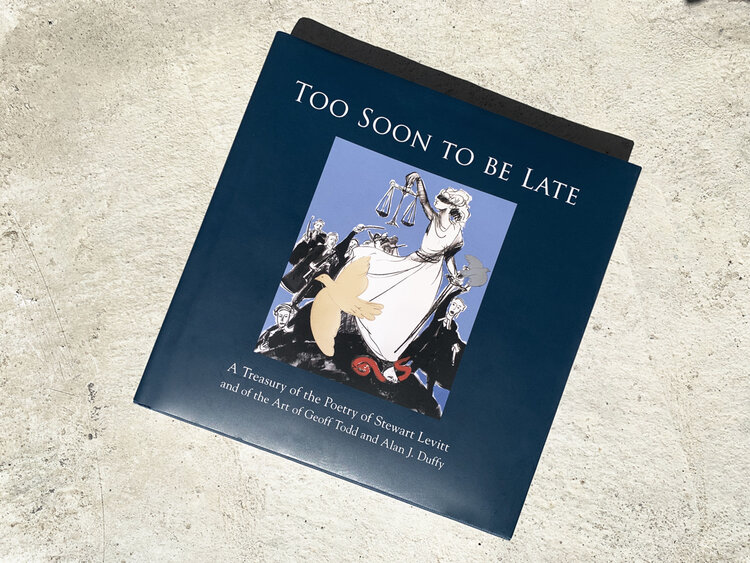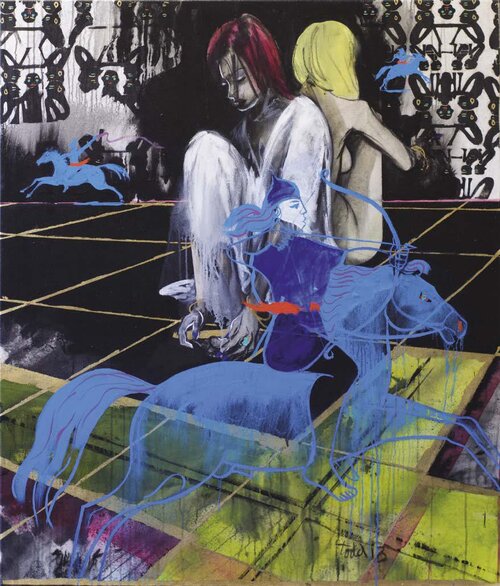‘Fighting the good fight’
Lawyer and avid poet Stewart Levitt has released a collection of poems with his musings on social activism, relationships, Judaism and human rights.
THE opening corridor at Levitt Robinson Solicitors is not what one would expect when entering a law firm.
Colourful graffiti is splashed on the walls – vibrant, thick dashes of colour that can only be attributed to world famous street artist, Anthony Lister.
Lawyer and founding partner of Levitt Robinson solicitors, Stewart Levitt, defended Lister against 12 counts of criminal damage related to street art he created around Brisbane.
While Lister was fined $440 and required to undertake five hours of community service, no conviction was recorded.
He is one of many underdogs who Levitt has represented against the big players, but probably the only one to have been offered the opportunity to impress his artistic mark on Levitt’s office walls.

Among the string of cases that Levitt has worked on are the Storm Financial class action and the Palm Island case, providing a rich resource of material for his recently published 184-page anthology of poems – Too Soon to be Late.
“It’s the issues [of my clients] and their concerns and their ups and downs, their highs and lows, their emotional states, how I can inspire them, how I can lead them, what I can do for them, how I see my role in the scheme of things. That’s what I’ve sought to translate to poetry, as well as my relationships with my wife, daughter, other people,” Levitt remarked, whose motivation for becoming a lawyer stems from a yearning to “be out there, fighting the good fight”.
The plight of Indigenous communities is an issue he has long rallied behind, and remains passionate about.
Levitt acted for 447 Palm Island residents concerning allegations of racial discrimination against the Queensland government and police, which led to a finding that police had acted in a racist manner towards a local man and a $30 million settlement by the Queensland government.
“There is a substantial part [of my anthology] which is dealing with the suffering and the indignities to which Indigenous people are still subjected to in Australia,” said Levitt.

“I’ve often contemplated what is an Indigenous person to do to get the injustices against them recognised and addressed by the Australian government? … I think it’s an indictment against the Australian student movement and the Australian labour movement to the enormous gap that still exists between the quality of life suffered by Indigenous people compared to the quality of life enjoyed by Australian white people and white migrants to this country.”
Poetry also allows his passion for Israel – and his outrage about the state being “unfairly targeted, disproportionately targeted” – to shine through his unique standpoint.
“If I tell the story as I see it in the book, which is also concerned with Indigenous rights and my experience as an Australian and my personal human experience as a citizen of the world, as a human being, as a man, a father, a husband and so forth, I can get people to read about Israel in certain circumstances where they would never normally pick up a book that was pro-Israel,” Levitt explained.
“By presenting the book in this way, I am managing to use this book as a weapon in the war of words on behalf of Israel.”
But it isn’t all one-sided dogmatic support of Israel.

“I am still a liberal person who does believe that Israel should have a more humane and appropriate attitude towards the people to whom it has taken responsibility … There are one or two poems that are subtly critical of Israeli policy, but it’s much more subtle when I’m being critical than when I am asserting the position of Israel in the world and the Jewish people.”
Some of his poems have Hebrew translations, such as BDS, Moral Capital and Autoimmune – perhaps as a way of paying tribute to his grandfather.
“My grandfather used to write Hebrew poetry,” said Levitt. “My grandparents were very Orthodox, although the Orthodoxy was diluted by the time I was born, but poetry was very important when I was growing up with my mother and her sister always reciting Shakespeare and reading from the Golden trilogy of verse, so I became very familiar with, and inspired by, the English language.”
The rhythmic lulls of verse allow Levitt to “home in on the emotive feelings and you can strike the right note, as it were, in targeting those issues and you can go right to the crux and you can speak very much more strongly in poetry than you can in prose. It’s a higher impact.”
Levitt is now encouraging other poets – Indigenous and non-Indigenous, budding and established – to embrace their creative sides. Coinciding with the book’s release, the Levitt Indigenous Poetry Prize has also been launched. The top three poems will receive a share of $20,000, and the best entries will be included in a biennial anthology called the L.I.P.P Edition.
The book can be purchased at toosoontobelate.com and at selected booksellers.


comments